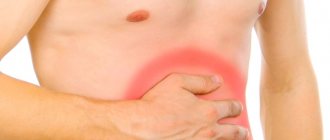Anyone who monitors their health knows well that food has a very serious impact on the condition of the body.
In extreme situations, such as stress, nutrition can aggravate any chronic ailment or the body's reaction to an irritant, and can act as an antidepressant and adaptogen.
According to research , certain foods and herbs can effectively reduce anxiety, restlessness and other stress-related conditions, including panic attacks, without serious side effects.
Research also confirms that changing your diet is an effective method of combating mental disorders such as neurosis and depression.
Therefore, it is highly desirable to know the properties of certain products and substances that can help overcome a difficult situation and even mitigate the impact of stress on many body systems.
Let's remember that we previously reviewed the 7 best products to combat depression.
Why are some foods soothing?
A person may or may not like food, but each product has a certain composition and properties that have a serious impact on the functioning of various organs. This is especially noticeable during times of stress, which many have the habit of “eating.”
The body reacts to an extreme situation with increased excitability of the nervous system, increased breathing, heart rate, increased blood pressure, etc. In extreme cases, all this can provoke a panic attack.
If a person’s diet is structured in such a way that food brings into his body substances that aggravate stress and aggravate its consequences, then due to the increased load, individual organs and systems fail, hidden or long-standing diseases unexpectedly worsen, and sometimes problems arise that are incompatible with life.
Anti-stress drinks
Green tea
The healing properties of this drink were known to Chinese healers several thousand years ago. The active substances present in tea help improve mood and overall vitality. A tasty and healthy drink helps prevent stress thanks to its high content of antioxidants that protect nerve cells. Even the smell of green tea has a calming effect on the nervous system.
Black tea
“Classic” black tea also promotes rapid recovery of the nervous system exposed to daily stress. Recent studies by scientists from University College London have shown that fans of this drink who drank 4-6 cups a day after experiencing stress had lower levels of cortisol in the blood than representatives of the control group who were not given tea.
Please note: the calming effect of tea is enhanced if you add herbs such as lemon balm and mint to the drink when brewing.
Red wine
Natural red grape wine has a high content of natural antioxidants. When stressed, this drink should be consumed in very moderate quantities. The dose considered safe for men is 300 ml per day, and for women it is half as much.
To find out which 8 products are considered the most effective in combating stress, we recommend watching this video review:
Trofimova Yaroslava, nutritionist
12, total, today
( 193 votes, average: 4.74 out of 5)
Beets and beet juice: benefits and harms, use in folk medicine
6 petals diet: sample menu for every day, reviews from nutritionists and results
Related Posts
What substances does the nervous system need?
In the case of a well-designed menu, on the contrary, the work of the nervous, circulatory, hormonal, cardiovascular and other systems is facilitated. To combat depression and prevent an acute reaction to stress, it is helpful to regularly include foods containing the following in your diet.
- B vitamins. They are not only beneficial for metabolic processes, but also directly affect the nervous system: calm it and strengthen it.
- Calcium, potassium, magnesium, iodine, phosphorus, zinc. Minerals are essential for the nervous system. They improve the transmission of nerve impulses and improve brain function at the cellular level.
- Stimulators of the formation of joy hormones. Hormones such as serotonin, dopamine, and endorphin have a beneficial effect on the lobes of the brain responsible for mental balance, good mood and optimism in general. They are synthesized and maintained at the proper level thanks to tyramine, tryptophan, phenylalanine, organic acids, aromatic and other beneficial substances.
- Polyunsaturated fatty acids omega-3, omega-6 and omega-9 nourish brain tissue, strengthen blood vessels and improve blood circulation in the main thinking organ, which means they help it withstand any increased load.
Thanks to the saturation of the body with all of the listed substances, it is easier for it to perceive any change in living conditions, be it physical or emotional stress.
Animal products recommended for combating stress
Milk
To minimize the negative effects of stress on the body, it is recommended to drink at least a liter of milk per day. It should be consumed warm during moments of rest. According to research conducted by French physiologists and biochemists, the protein compound lactium contained in milk can lower the level of the hormone that is produced during overexertion - cortisol. Thanks to this, this protein has a pronounced calming effect.
Whole milk also contains significant amounts of calcium, vitamins B2 and B12, as well as antioxidants that minimize the negative effects of free radicals at the cellular level. The familiar product has a positive effect on people of all age groups. It has been established that milk can stabilize the functioning of the nervous system in women with PMS, and even reduce pain during menstruation.
Please note: fermented milk products - yoghurt and cottage cheese - are also extremely healthy.
Fish and seafood
Of all the varieties of fish, the most useful for stress are salmon (chum salmon, pink salmon, salmon, salmon). The product has a very high content of polyunsaturated omega-3 fatty acids. These substances promote the release of serotonin, while simultaneously reducing the level of so-called. “fear hormones” – cortisol and adrenaline. The iodine and zinc present in seafood contribute to improving the functioning of the human endocrine system.
Poultry meat
Chicken and turkey meat contains a lot of tryptophan. This is an essential amino acid necessary for the synthesis of the neurotransmitter serotonin, which prevents the development of depression.
Rabbit meat
Rabbit meat is recommended by many nutritionists as a unique source of vitamins B6, B12 and PP, as well as potassium, phosphorus, iron, fluorine and lecithin protein. These substances are necessary to maintain the functional activity of the nervous system at the required level. Heavy metal salts and other toxins almost do not accumulate in the rabbit’s body, which makes the product environmentally friendly. Rabbit dishes are indicated if a person has allergies and hypertension.
Mutton
Nutritionists especially recommend lamb if a person suffers from nervous disorders. It contains a lot of fluorine, iodine, magnesium, potassium and B vitamins. The disadvantage of this product is the high content of refractory fats.
Top 15 useful products
Creating an anti-stress menu is not difficult. It should include natural products that have different compositions, but are equally effective in relieving stress.
Lean meat
Turkey, chicken, lean beef and lean pork contain not only building materials for the body - proteins of animal origin.
They are rich in substances that promote the production of the neurotransmitters serotonin, dopamine, epinephrine and norepinephrine, without which the normal functioning of the central nervous system is impossible. These are such unique amino acids as:
- tryptophan;
- phenylalanine.
People who do not give up lean meat products are much less likely to suffer from loss of energy, anxiety, unreasonable fear and decreased concentration.
As a rule, their motivation is at a decent level, their memory works well, and chronic fatigue is rare.
Tryptophan is associated to a greater extent with the synthesis of the hormone of happiness serotonin and the hormone of good sleep melatonin. Phenylalanine promotes the formation of dopamine, melatonin, epinephrine, and norepinephrine.
Fatty fish
For the formation of the happiness hormone serotonin, B vitamins are needed, which are present in fatty sea fish and seafood.
But the most important advantage of this food is that it contains a lot of unsaturated fatty acids omega-3 and omega-6 , which help the normal functioning of nerve cells and make brain vessels elastic and strong.
Seafood is also rich in iodine, phosphorus, vitamins A and E, which are extremely useful for strengthening the brain and nervous system as a whole.
The most useful are squid, shrimp, mussels, as well as fish:
- mackerel;
- herring;
- trout;
- salmon;
- tuna;
- halibut;
- sardine;
- acne.
And the latest research suggests that salmon, for example, even helps reduce the level of stress hormones - cortisol and adrenaline. And regular consumption of salmon reduces the risk of panic attacks in people suffering from panic disorders.
Sea kale
This plant is difficult to replace with any other plant product. It is extremely necessary for those who lead a busy lifestyle, are engaged in mental work and are regularly exposed to stress.
its high iodine content, sea kale, or kelp , helps the functioning of the thyroid gland, the organ that is primarily responsible for the body’s response to stress. Pantothenic acid and vitamin B are also found in this product.
Milk and dairy products
Milk, curdled milk, yogurt, cottage cheese, cheese should be in a person’s diet if he is susceptible to stress.
The reason for their mandatory inclusion in the daily menu is the presence of calcium, magnesium and tryptophan .
But there is one condition: it is healthier and more correct to consume low-fat dairy products, but not low-fat ones either.
Because fatty foods are less digestible, and excess fats impede the normal functioning of the brain and nervous system as a whole. Low-fat ones bring little benefit, because without fats, the fat-soluble vitamins and minerals needed by the body are less easily absorbed.
Whole grain cereals and breads
Cereals have a beneficial effect on the nervous system, as they contain complex carbohydrates and provide a lot of energy .
People who regularly eat porridge, whole grain bread and durum wheat pasta are less likely to suffer from nervous disorders, since this food does not overload the digestive system and is soothing due to its nutritional value and the presence of vitamin B.
In addition, many porridges, such as oatmeal, stimulate the synthesis of serotonin. Nutritionists also recommend consuming brown rice and buckwheat more often against anxiety and stress.
Green vegetables
All vegetables are good for the brain and nervous system. But those that contain green pigment have a high content of vitamin B , which means they fight stress well and improve mood. This is first of all:
- spinach and all leaf lettuces;
- white cabbage and broccoli;
- green beans and celery stalks.
Celery also contains aromatic substances that have a beneficial effect on the nervous system.
Tomatoes
The tomato is considered a good mood vegetable. It contains so many vitamins, minerals, and sugars that it can successfully replace several other vegetables at once. Of course, among them there are those that strengthen the nervous system.
But the main thing is that tomato is considered a natural antidepressant , as it contains substances that directly affect the emotional state.
- Tyramine. This organic compound is converted in the body into the happiness hormone - serotonin.
- Phenylalanine. Thanks to it, the good mood hormone endorphin is not destroyed in the body for a long time.
Fruits and berries
You should not neglect such a storehouse of vitamins, organic acids, sugars and mineral salts as fruits and berries.
- Citrus fruits , for example, orange and grapefruit, are rich in vitamins C, A, K, E, group B. They contain many minerals and acids, including folic acid, which affects the amount of serotonin produced in the body. Grapefruit also reduces the level of the stress hormone cortisol. All citrus fruits contain soothing essential oils, which are also used in aromatherapy.
- Banana is good because it helps the body become saturated with serotonin.
- Blueberries, blueberries, and raspberries are also beneficial for the nervous system. In addition, antioxidants in their composition serve as prevention of aging.
Spices and herbs
They are all extremely useful. They contain a concentrated vitamin and mineral composition , which improves the functioning of all body systems at once.
And the essential oils in parsley, dill, and cilantro lift your spirits, even simply by affecting the olfactory receptors.
You need to be careful with hot herbs and spices. For example, cayenne pepper is very useful for nervous disorders and stress. But it stimulates the digestive tract very strongly, which is not very beneficial for a person under stress. Therefore, this spice must be used extremely carefully, taking into account the individual characteristics of a person.
Natural honey
Provided that the origin of honey is not in doubt, this product is certainly indicated for nervous disorders.
Honey is useful for improving blood circulation in the brain, improving the condition of blood vessels in the brain and coronary vessels of the heart.
Honey has long been used as an anti-stress and antidepressant . Especially if the nectar for it is taken from plants that have sedative properties.
Nuts and seeds
These are high-calorie foods, but the content of vitamins and mineral salts in them is so high that it is impossible to ignore them when talking about anti-stress foods.
Nuts also improve memory and help produce serotonin.
In addition, flax seeds, sesame seeds, hazelnuts, peanuts, walnuts, cashews, pecans, peanuts and many others are high in essential fatty acids. They ensure the overall health of the nervous system, and also nourish brain cells well and stimulate its activity, which cannot but have a beneficial effect on mood.
Chocolate
Any chocolate lifts the mood, provided that the person likes it. But the healthiest kind is bitter - with a minimum of fat, without sugar, but consisting of 80% grated cocoa beans.
By eating a slice of high-quality chocolate, you can instantly replenish your reserves of endorphins , which means you can very quickly change the state of your body from stressful to peaceful and joyful.
Green tea
This popular drink is capable of both calming and invigorating: it all depends on the quantity and strength.
But the main thing is that it normalizes the activity of the nervous system and strengthens it , making it invulnerable to stress if you drink this tea not very strong, but regularly.
The only thing you need to remember: if it is too strong, it can overstimulate the body for a short time, and if there is low blood pressure in large quantities, it can lead to a loss of strength. Therefore, if you have hypotension, it is better to drink black rather than green tea, which also has the ability to soothe.
Herbal teas
There are a large number of soothing plant-based teas, which, thanks to their vitamin-mineral composition and aromatic substances, are a real cure for nervous diseases and stress relievers. For example:
- mint tea helps to relax after stress and improves sleep;
- lemon balm infusion is considered an excellent adaptogen: it helps to face any nervous tension with dignity and maintain composure;
- chamomile tea soothes both body and soul: relieves muscle spasms, eliminates anxiety, fear, panic attacks and fights insomnia;
- ginger tea , especially with lemon, calms thanks to its aromatic oils, omega-6 and omega-9 fatty acids, and because it contains several amino acids, including tryptophan.
Plain water
Even plain water helps relieve stress. The first thing that is recommended to do in case of acute stress is to drink a glass of water in small sips. This is due to the fact that:
- by performing simple physical actions, it is easier to distract yourself from stress;
- water, entering the blood, normalizes its composition and improves blood circulation in the brain, helping to relieve excess stress;
- all mental processes, including the emotional state, are optimized when the brain, dependent on a sufficient amount of fluid in the body, ceases to experience dehydration.
Also check out the infographic:
Herbal foods to combat stress
Chocolate
Not just any chocolate helps fight stress, but only dark chocolate, i.e., which contains at least 70% cocoa.
The product contains compounds such as bioflavonoids and phenylethylamines, the level of which in the body decreases sharply with increased stress. Psychiatric specialists from the University of South Wales (Australia) have proven that biologically active cocoa compounds stimulate the synthesis and release of “happiness hormones” - endorphins. In particular, the neurotransmitter dopamine is a precursor to adrenaline and norepinephrine, the release of which increases in stressful situations. The antioxidants present in chocolate prolong the life of nerve cells. Important: white chocolate is practically useless under stress. It can only replenish energy reserves due to its high carbohydrate content. It is enough to consume 30 grams of dark chocolate per day.
Nuts
Pistachios contain a lot of dietary fiber, which accelerates the body's cleansing of toxins and helps eliminate excess cholesterol. According to Spanish researchers, walnuts are the most beneficial because they normalize the level of adrenaline in the body. Hazelnuts and almonds also stimulate the synthesis of the neurotransmitter serotonin in the central nervous system. Thanks to this, they help improve mood and overall tone. This product contains a number of useful compounds that have a beneficial effect on many organs and systems of the body. In particular, nuts help cope with the consequences of stress such as decreased sex drive. Almonds contain zinc, riboflavin (vitamin B2), as well as a powerful antioxidant - vitamin E. Zinc and vitamin E are directly involved in the regulation of immunity, which makes almonds containing them a unique natural adaptogen.
Fresh herbs
Green leafy vegetables should always be included in the diet. According to psychologists at Stanford University (USA), greens help reduce irritability and prevent the development of depression under stress. It saturates the body with vitamins and minerals, providing a general strengthening effect. Greens contain a large amount of magnesium, which significantly increases the level of stress resistance by stimulating the production of hormones. The trace element actually plays the role of a natural tranquilizer (sedative).
Important: magnesium is present not only in leafy vegetables, but also in legumes (soybeans, beans), seafood and nuts.
The accumulation of toxic metabolic products makes a person much less resistant to stress. Fiber, which is abundant in cabbage, sorrel, spinach and lettuce, helps to effectively cleanse the body of toxins.
Oatmeal
This widespread dietary product is recommended for regular consumption by all people who are more or less exposed to stress factors. The product contains a large amount of carbohydrates, which promote the production of an important neurotransmitter - serotonin. A significant drop in its level leads to the fact that, due to nervous stress, a person develops intense migraine headaches and depression. It is known that stress in many people causes an increase in the acidity of gastric juice. Due to the fact that oatmeal has an enveloping effect, it reduces the risk of developing gastritis. In addition, it is digested relatively slowly; A long-lasting feeling of satiety prevents overeating and gaining extra pounds against the background of psycho-emotional overload.
Sunflower seeds
This well-known product contains a large amount of folic acid, which has a beneficial effect on the nervous system. Biologically active substances present in sunflower seeds stimulate the release of serotonin.
Blueberry
Blueberries contain a wide range of useful substances - vitamins and microelements. Research conducted by scientists at the Human Brain Institute (Russian Academy of Sciences) has shown that regular consumption of blueberries helps improve overall vitality, reduce anxiety and improve mood.
Sea kale
Laminaria algae (“sea kale”) is one of the best sources of iodine. By consuming 100 g of this product per day, you can completely cover the body's need for this microelement, which will prevent stress. Iodine is an integral component of a number of thyroid hormones that help the body adapt to external stress factors. Sea kale has a high content of pantothenic acid, which is part of coenzyme A, which is responsible for energy metabolism. Pathotenic acid deficiency is considered one of the main causes of chronic fatigue syndrome, and regular consumption of seaweed can help avoid it.
Red algae “nori”, which is used to prepare national Japanese dishes, is also very useful.
Please note: the level of stress tolerance is much higher among lovers of traditional Japanese and Korean cuisine, as well as among adherents of the “Mediterranean diet” (with a predominance of vegetables and seafood in the diet).
Red and orange vegetables
Carrots and pumpkin contain a lot of beta-carotene (provitamin A), which helps strengthen brain vessels and improve microcirculation in the central nervous system (brain and spinal cord).
Fresh tomatoes contain substances that slow down the decomposition of “happiness hormones” - endorphin, serotonin and dopamine.
Chard
The chard vegetable contains ascorbic acid, vitamin E and a significant amount of magnesium, which helps fight fatigue. Thanks to the unique combination of vitamins and microelements, the product is an effective means for the prevention of such serious pathologies as Parkinson's disease and Alzheimer's disease. In addition, the vegetable prevents the development of cardiovascular diseases.
Citrus
It is recommended to consume aromatic fruits as often as possible, regardless of the state of the nervous system. They simply contain a huge amount of ascorbic acid, and vitamin C plays an important role in the fight against stress, which is confirmed by research conducted at Atlanta University (USA).
Kiwi
Kiwi is high in vitamin C, which activates enzymes responsible for the level of neurotransmitters in the central nervous system. Thanks to this, regular consumption of the fruits of “Chinese gooseberries” has a positive effect on mental activity and reliably protects against psycho-emotional stress.
Avocado
Avocados contain a lot of vitamin B, which promotes the biosynthesis of neurotransmitters, as well as necessary for the process of hematopoiesis (production of red blood cells) and replenishment of the body’s energy base. Avocado contains a large amount of monounsaturated fatty acids, which, according to research, can significantly reduce the risk of overload of the nervous system and the subsequent development of depression.
What should you avoid?
In addition to foods that help against depression, there are those that are best reduced to a minimum or completely excluded from the diet if the body is often exposed to stress. This is due to their stimulating or, conversely, depressing effect.
- Fatty and fried foods. Fatty meats, dairy products with a high percentage of fat, fried foods are poorly digested, and excess fat is deposited on the inner walls of blood vessels, including brain vessels. In this case, the blood supply to the brain deteriorates, which depresses the psyche of a person, who in this state is unable to adequately respond to stressful situations.
- Synthetic food: fast food, sausages, semi-finished products, snacks. All this food is the most inedible thing imaginable, as it contains a large amount of fat, especially trans fats, salt, chemical additives for preservation, color and flavor enhancement. These products harm the brain, worsen the composition of the blood and, as a result, the functioning of all body systems.
- Confectionery products with refined sugar and baked goods made from white flour. Many people have the habit of “eating” stress with sweets. Fast carbohydrates, including sucrose, lead to an artificial energy and emotional rise, and then to a sharp decline. This causes a surge of serotonin and endorphin, followed by an emotional and physiological “kickback”, which increases the stress state.
- Alcohol. The calming effect of drinking alcohol is mainly an illusion based on the fact that brain cells lose their functionality under the influence of ethanol. Neutralizing stress with alcohol leads to subsequent depression and personal degradation to varying degrees.
Artichokes
Artichokes are an incredibly concentrated source of dietary fiber and are especially rich in prebiotics, a type of fiber that feeds the good bacteria in your gut ().
Animal studies suggest that prebiotics such as fructooligosaccharides (FOS), which are concentrated in artichokes, may help reduce stress levels ().
Additionally, one review found that people who consumed 5 grams or more of prebiotics per day experienced relief from symptoms of anxiety and depression, and that high-quality, prebiotic-rich diets may reduce the risk of stress ().
Artichokes are also rich in potassium, magnesium, and vitamins C and K, which are essential for a healthy response to stress (, ).
Shellfish
Shellfish, which include mussels, clams and oysters, contain many amino acids such as taurine, which has been studied for its potential mood-boosting properties ().
Taurine and other amino acids are essential for the production of neurotransmitters such as dopamine, which are essential for regulating the stress response. In fact, research shows that taurine may have antidepressant effects ().
Shellfish are also rich in vitamin B12, zinc, copper, manganese and selenium, which can help improve your mood. A study of 2,089 Japanese adults linked low intakes of zinc, copper, and manganese to symptoms of depression and anxiety ().
Barbados cherry (powder)
Barbados cherries (acerola) are one of the most concentrated sources of vitamin C. They contain 50–100% more vitamin C than citrus fruits such as oranges and lemons ().
Vitamin C is involved in the stress response. Moreover, high levels of vitamin C are associated with improved mood and reduced levels of depression and anger. In addition, eating foods rich in this vitamin can improve your overall mood (, ,).
Although you can find Barbados cherries fresh, they spoil very quickly. Therefore, it is most often sold in powder form, which you can add to foods and drinks.










